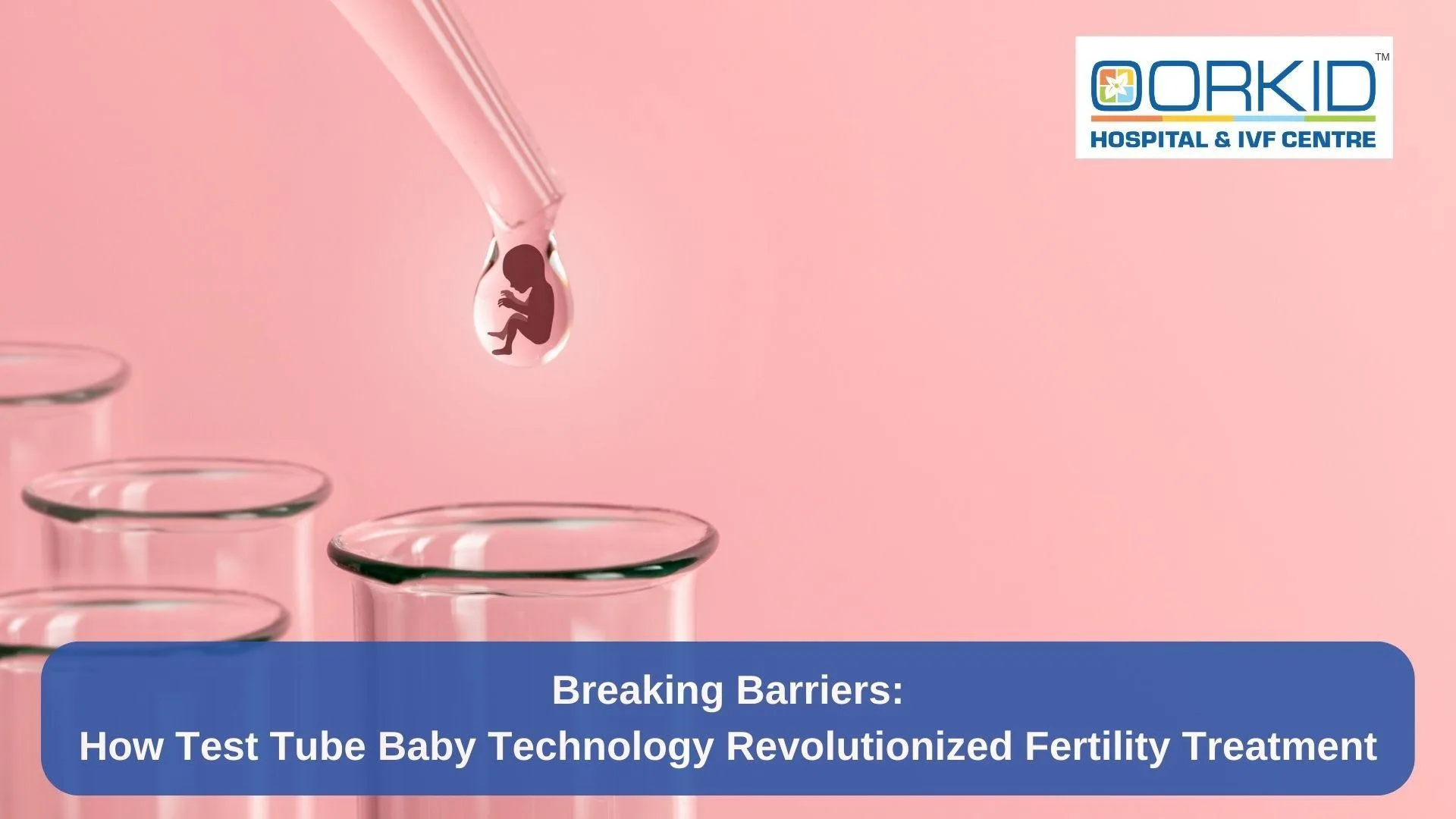In the history of medical breakthroughs, few innovations have had as profound an impact as test tube baby technology on fertility treatment. Over the past few decades, this revolutionary method has shattered barriers and opened new possibilities for couples struggling with infertility. In this blog, we will explore the origins of test tube baby technology, its evolution, and the transformative effects it has had on fertility treatments worldwide, based on the inputs provided by our doctors at Orkid Hospital, one of the best infertility hospitals in Surat.
The Genesis of Test Tube Babies
The term “test tube baby” may evoke images of babies developing in glass containers, but the reality is more complex and awe-inspiring. The first successful in vitro fertilization (IVF) procedure, leading to the birth of Louise Brown in 1978, marked a pivotal moment in medical history. Conceived outside the human body, this breakthrough was achieved through the collaboration of British researchers Sir Robert Edwards and Patrick Steptoe.
The ground-breaking procedure involved the fertilization of an egg with sperm in a laboratory dish before implanting the embryo into the woman’s uterus. Louise Brown’s birth not only signalled the triumph of science over infertility but also sparked a revolution in reproductive medicine.
Breaking the Silence on Infertility
Infertility was a topic often shrouded in secrecy and shame, leaving countless couples silently grappling with their struggles. Test tube baby technology played a pivotal role in breaking this silence, offering hope and a voice to those who had long suffered in silence. The success of Louise Brown’s birth brought attention to the possibilities of assisted reproductive technologies, encouraging open conversations about infertility and reducing the stigma associated with it.
Evolution of Test Tube Baby Technology:
Since the birth of Louise Brown, test tube baby technology has evolved significantly, with ongoing advancements enhancing its efficacy and safety. Improvements in laboratory techniques, cryopreservation methods, and hormonal stimulation protocols have increased success rates and expanded the range of patients who can benefit from IVF.
One notable development is the introduction of intracytoplasmic sperm injection (ICSI), a technique that involves directly injecting a single sperm into an egg. This innovation has been a game-changer for couples facing male infertility issues, providing a tailored solution to overcome specific challenges in conception.
Moreover, the ability to screen embryos for genetic abnormalities through preimplantation genetic testing (PGT) has further refined the IVF process and segregated the best IVF hospitals in Surat from others. This not only increases the likelihood of a successful pregnancy but also helps reduce the risk of certain genetic disorders, empowering parents with greater control over the health of their future children.
Global Impact and Accessibility
Dr Kajal Mangukiya, founder of Orkid hospital renowned as one of the best test tube baby centres in Surat, shares her experience and says that test tube baby technology has transcended geographical boundaries, offering hope to millions of couples worldwide. As the technology has become more widely available and accepted, fertility clinics around the globe have embraced IVF as a standard practice for addressing infertility. This global reach has democratized access to fertility treatments, allowing couples from diverse backgrounds and cultures to pursue their dream of parenthood.
Challenges and Ethical Considerations
While the impact of test tube baby technology on fertility treatment has been overwhelmingly positive, it has not been without challenges and ethical considerations. The high cost of IVF, coupled with limited insurance coverage in many regions, can create financial barriers for some individuals and couples. The ethical implications of assisted reproductive technologies, such as the creation and disposal of excess embryos, also spark ongoing debates within the medical and ethical communities.
Future Horizons
As technology continues to advance, the future of fertility treatment holds exciting possibilities. Researchers are exploring innovative techniques, such as mitochondrial replacement therapy and artificial intelligence applications, to further enhance the success rates of IVF and address specific challenges in infertility treatment.
Conclusion
Test tube baby technology shows the remarkable progress of medical science in overcoming infertility. From the birth of Louise Brown to the countless success stories that have followed, the impact of IVF on fertility treatment is immeasurable. As this technology continues to evolve, it not only breaks down barriers for individuals and couples facing infertility but also fosters a more open and understanding society where the dream of parenthood becomes a reality for many. If you have undergone the harrowing experience of not being able to conceive or carry a full-term baby, consult the expert doctors at Orkid Hospital, one of the best IVF hospitals in Surat, to embrace parenthood.



